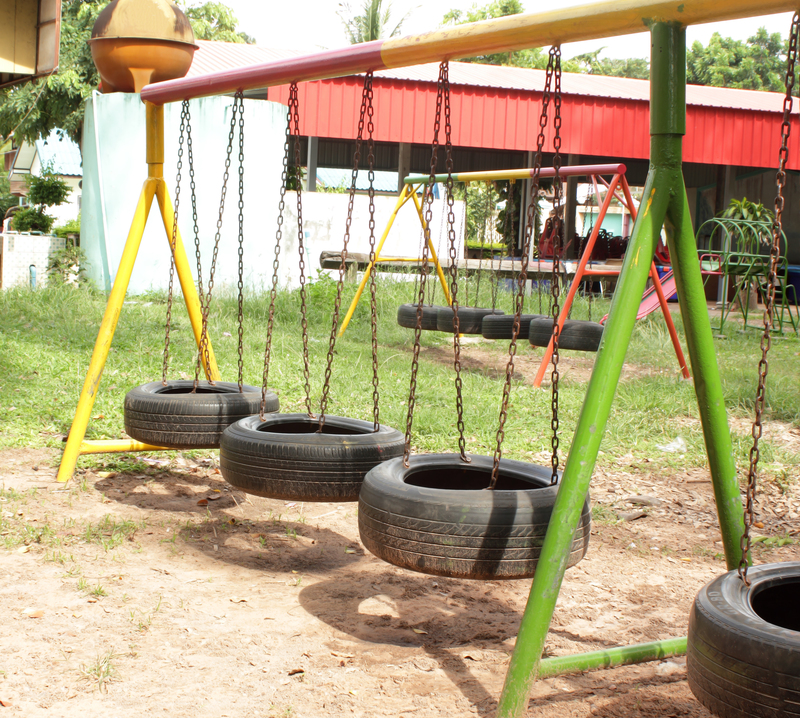Master the Art of Waste Prevention with These Home Tips
Reducing household waste is more than just an environmental trend--it's a vital lifestyle change that benefits the planet, your wallet, and future generations. If you're eager to create a cleaner, greener, and more efficient home, you've come to the right place. This comprehensive guide will walk you through proven techniques to master the art of waste prevention. With actionable tips and practical advice, you can start making a measurable impact today.
Why Household Waste Prevention is Essential
According to the EPA, the average American produces nearly five pounds of trash every day. Much of this waste ends up in landfills, pollutes rivers, and generates greenhouse gases. Preventing waste at home is one of the most effective ways to reduce your environmental footprint, save resources, and contribute to a sustainable future. When you embrace waste reduction at home, you also save money, create a healthier living environment, and inspire your family and community to do the same.

Adopting a Zero Waste Mindset
Waste prevention starts with shifting your mindset. Instead of thinking about what to throw away, ask yourself How can I avoid creating this waste in the first place? A zero waste home approach encourages you to be more intentional with your purchasing and consumption decisions, focusing on prevention rather than management.
- Be mindful of packaging - Choose products with minimal or recyclable packaging whenever possible.
- Prioritize quality over quantity - Invest in durable goods that last longer instead of single-use alternatives.
- Re-evaluate needs vs. wants - Before buying, pause and determine if the item is truly necessary.
- Embrace the 5 R's - Refuse, Reduce, Reuse, Recycle, Rot.
Refuse: The First Step to Preventing Waste
The most effective way to prevent household waste is to refuse items that generate trash. This means saying no to:
- Single-use plastics like straws, cutlery, and takeout containers
- Superfluous promotional freebies and samples
- Excess packaging or individually wrapped items
Every time you refuse such items, you send a powerful message to manufacturers and retailers that wasteful packaging is not acceptable.
Reduce: Buy Less, Waste Less
Smart consumption is at the heart of waste prevention at home. Reducing what you bring into your house means less to eventually discard.
- Plan your shopping - Create grocery lists and stick to them to avoid impulse purchases.
- Buy in bulk - Choose larger containers or refillable options to minimize packaging waste.
- Avoid disposable products -- Select reusable versions wherever possible.
- Opt for digital - Read magazines, newspapers, and books online when you can.
Practical Waste Prevention Tips for Every Room
The Kitchen: The Heart of Waste Reduction
Most household waste is generated in the kitchen. Mastering kitchen waste prevention can significantly reduce your overall trash output.
- Compost food scraps - Establish a composting system for fruit and vegetable peelings, coffee grounds, and eggshells.
- Invest in reusable containers - Swap plastic wrap and sandwich bags for glass or silicone storage solutions.
- Batch cook and freeze - Prepare meals in bulk and freeze portions to avoid food spoilage and unnecessary packaging.
- Shop local and seasonal - Purchase locally grown produce to avoid excess packaging and lower carbon footprints.
- Monitor fridge and pantry - Rotate food so older items are used first, reducing spoilage and waste.
Bathroom: Sustainable Self-Care
The bathroom may seem small, but it's a significant source of disposable waste. Make the switch to waste-conscious alternatives and eco-friendly habits.
- Use bar soaps instead of bottled body washes to minimize plastic waste.
- Swap disposable razors for safety razors -- They last longer and reduce landfill waste.
- Choose bamboo toothbrushes or recyclable alternatives.
- Opt for reusable makeup removers instead of single-use wipes.
- Purchase personal care products in bulk or from zero-waste stores.
Living Room: Conscious Consumption & Decluttering
Your living spaces can also be optimized for waste-free living through mindful selection and maintenance of items.
- Borrow or rent items such as books, movies, or games instead of buying new ones.
- Choose quality furnishings that stand the test of time over trendy, disposable decor.
- Donate or sell unwanted items instead of discarding them.
- Repurpose or upcycle decor to breathe new life into old possessions.
Laundry Room: Greener Cleaning Practices
Traditional laundry routines can produce significant waste. Learn to master waste reduction in the laundry room with smart swaps and habits.
- Use concentrated or refillable detergents to reduce packaging waste.
- Wash with cold water to save energy and prolong clothing lifespan.
- Hang clothes to dry whenever possible to minimize dryer use and prevent wear.
- Opt for reusable dryer balls instead of disposable sheets.
- Mend and repair clothing to extend its life.
Advanced Strategies: Take Waste Prevention to the Next Level
Establish a Home Waste Audit
An audit is a powerful tool for understanding your household's waste patterns. By systematically tracking what you throw away over a week or a month, you can pinpoint your biggest sources of waste and target them effectively. Keep a simple chart or spreadsheet categorized by:
- Food waste
- Packaging materials
- Paper and cardboard products
- Single-use plastics
- Miscellaneous items
Review your findings regularly and set incremental waste prevention goals. This method is instrumental for improving and tracking your home waste reduction progress.
Engage Your Family in Waste Prevention
Making it a family affair increases buy-in and ensures lasting results. Organize fun competitions to see who can generate the least waste, reward creative reuse solutions, and involve kids in composting and recycling. The earlier children learn about sustainable waste management, the more intuitively they'll embrace it into adulthood.
Share, Borrow, and Rent to Minimize Purchases
Community sharing is a powerful tool for minimizing waste. Look for neighborhood groups, online marketplaces, or local libraries that encourage resource sharing. Items you can borrow or rent rather than buy include:
- Tools and equipment
- Children's toys
- Camping or party gear
- Specialty kitchen appliances
This not only saves money and reduces clutter--it also fosters a sense of community and resourcefulness, both of which are key to mastering household waste prevention.
Compost: Nature's Waste Prevention Solution
Composting isn't just for gardeners! It's a critical aspect of home waste reduction that anybody can adopt. Organic waste--like fruit peels, vegetable scraps, coffee grounds, and eggshells--can make up to 30% of household waste.
- Set up a compost bin in your backyard or choose a countertop system for apartments.
- Learn what to compost - Stick to plant-derived food scraps, yard waste, and avoid meats or dairy.
- Use finished compost to enrich your garden, potted plants, or shared community spaces.
Not only does this drastically reduce landfill contributions, but it also returns valuable nutrients to the soil, closing the loop and promoting sustainability at home.
Recycling: The Last Resort, Not the First Choice
While recycling is important, true waste prevention means looking to it as a final option after refusal, reduction, and reuse. Sadly, not all recyclable materials are processed correctly, and contamination can send recyclable waste to landfills.
- Understand your local recycling guidelines - Each community has different rules for what's accepted.
- Clean recyclables before placing them in the bin to prevent contamination.
- Flatten cardboard boxes to optimize bin space and transport efficiency.
- Avoid "wishcycling" - Placing non-recyclables in the bin hoping they'll be recycled does more harm than good.
Upcycling for Creative Waste Prevention
Repurposing old items is both eco-friendly and fun. Upcycle glass jars as storage containers, turn old t-shirts into cleaning rags, or convert used boxes into organizers. Make it a family project and let creativity run wild!
How Waste Prevention Benefits Your Home and Community
Mastering the art of waste prevention at home delivers powerful benefits beyond just reducing your carbon footprint.
- Saves money by reducing purchases and minimizing disposal costs.
- Creates a cleaner, healthier home environment.
- Promotes mindfulness in daily habits and consumption decisions.
- Strengthens community bonds through sharing and collaborative efforts.
- Paves the way for future sustainability by modeling good behaviors for children and neighbors.

Get Started: Your Personal Waste Prevention Action Plan
Ready to put these home tips into action and master the art of waste prevention? Here's a summarized action plan to guide your journey:
- Conduct a home waste audit to identify problem areas.
- Adopt the 5 R's as daily mantras: Refuse, Reduce, Reuse, Recycle, Rot.
- Prioritize reusables in every room (bags, containers, water bottles, etc.).
- Start composting food waste if possible.
- Share, borrow, and rent instead of buying new whenever you can.
- Engage family members in creative waste reduction strategies.
- Stay informed on local recycling and disposal options.
Conclusion: Making Waste Prevention Your Lifestyle
Preventing waste at home is not just about restriction--it's about empowering yourself to make positive choices every day. With the practical tips in this guide, you're well on your way to becoming a true master in the art of home waste prevention. Remember, every small effort counts towards a larger environmental impact. Start with one room or one habit today, share your knowledge with others, and watch as sustainable, waste-free living becomes your household norm.